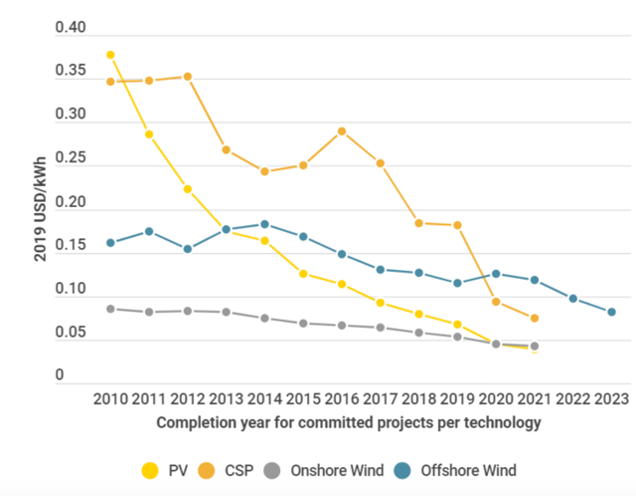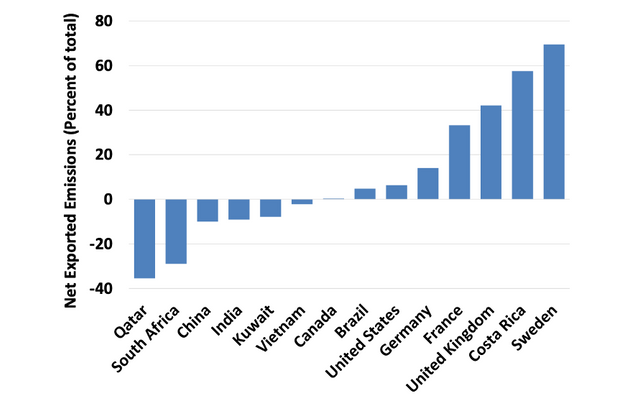Harmonizing the Economy with the Environment: Teaching Modules for a New Approach
By Mohish Agrawal
There is increasing demand for an economics curriculum that accounts for the importance of environmental issues such as climate change, biodiversity loss and natural resource degradation. Not only does the environment provide the natural capital essential as inputs to production, it also provides essential services, such as assimilation of waste and provision of clean air and drinking water. The economics curriculum, like the rest of the social sciences, must change to consider this nexus between the environment and the economy.
The Economics in Context Initiative (ECI) has published several teaching modules on contemporary environmental issues. These modules encourage students to think about how economic concepts can be used to devise real-world policy solutions to environmental problems. For example, the module ‘Energy Economics and Policy’ presents an analysis of how to transition away from fossil fuel energy to renewable resources, like wind and solar power. Economic policies such as energy taxation, subsidies, tradable pollution permits and demand-side energy management are among the several approaches discussed in the module to effectively speed up the transition away from fossil fuel energy.
Currently, the world obtains over 80 percent of its energy from fossil fuels, emitting carbon dioxide that contributes significantly to climate change. Also, the use of fossil fuel energy is associated with significant negative externalities, including land degradation, water use, waste disposal and human health hazards resulting from air pollution. As these damages have not been properly accounted for in fossil fuel prices, fossil fuels have historically retained a cost advantage over renewable energy sources. However, based solely on unsubsidized market prices, this cost advantage of fossil fuels is now obsolete as the price of wind and solar energy has plummeted – as shown in Figure 1:
Figure 1. Power Generation Costs for Solar and Wind Power Technologies, 2019

*Note: PV refers to solar photovoltaics and CSP refers to Concentrating Solar Power (CSP).
Another nexus between the environment and the economy occurs in the issue of global trade. Increasing global economic production of goods and services fueled by rising world trade contributes to environmental problems, such as deforestation, hazardous wastes and global climate change. The standard theory of comparative advantage demonstrates that two trading countries will both gain economic benefits if they specialize in production and efficiently trade with each other, but it leaves out the assessment of negative environmental externalities associated with production and consumption.
The ECI module ‘Trade and the Environment’ establishes that environmental costs may seriously affect the net gains from trade. The module dives deep into some practical examples of the environmental impacts of trade, like deforestation and loss of biodiversity as a result of export-oriented agriculture, depletion of water resources and the “race to the bottom” phenomenon in which countries reduce environmental and social standards in order to gain a competitive advantage in production.
Another important trade issue is that developed countries effectively export their carbon emissions and pollution to developing countries by shifting dirty industries to poorer countries, as shown in Figure 2:
Figure 2. Accounting for Carbon Emissions Embedded in International Trade

Increased transportation resulting from expanded trade also results in higher transport-related emissions and more environmental damage. The module discusses the importance of negotiating sustainable and equitable trade agreements.
The continued expansion of economic production and the human population raises the question of whether the limited amount of natural resources can support this continued growth. Take, for example, the case of clean water, with increasing global demands and decreasing supplies due to climate change and groundwater extraction. Water is an important input to production in both agricultural and non-agricultural sectors. The energy sector uses water at all stages of energy extraction, production and consumption.
ECI’s ‘Water: Economics and Policy’ module discusses the science, economics and policy of sustainable water management. It presents data on water stress and scarcity, while showing how policies can be redirected towards the effective management of water resources. The module also introduces the concepts of “virtual water” and “water footprint” to evaluate the usage of freshwater resources. The module discusses how economic instruments, including water markets and pricing, can be used to allocate water resources more equitably and effectively. It also introduces non-price policy mechanisms, such as behavioral economics, to foster sustainable practices.
These modules demonstrate that economics can be an important part of addressing modern environmental concerns. For too long, policy debates have been presented as a tradeoff between “the economy” and “the environment.” But with the broader contextual approach of ECI’s modules, which focuses on economics as a means toward greater human well-being, improved environmental quality is compatible with a vibrant and inclusive economy. These ECI modules present a range of policy solutions that to help the global community achieve these complementary objectives.
Explore the Teaching Modules
Mohish Agrawal is a Research Assistant at the Boston University Economics in Context Initiative. As a Boston University student studying Economics and Mathematics, his interest lies in clean energy technology, world trade and learning how to build an environmentally and economically sustainable world economy.
*
Never miss an update: Sign up to receive ECI’s newsletter.
